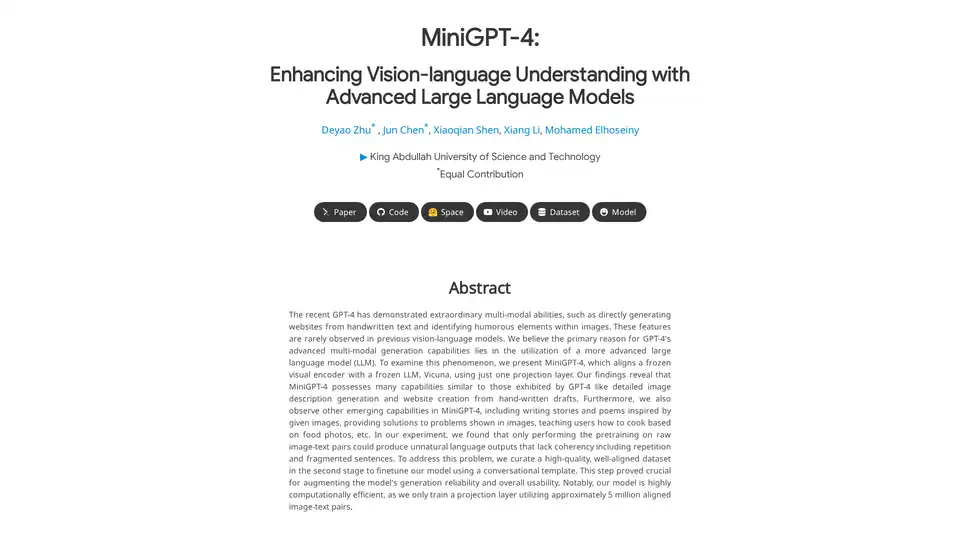
MiniGPT-4
Overview of MiniGPT-4
MiniGPT-4: Enhancing Vision-Language Understanding with Advanced Large Language Models
MiniGPT-4 is an innovative approach to vision-language understanding, leveraging the power of advanced Large Language Models (LLMs) to achieve capabilities similar to GPT-4. This model efficiently aligns a frozen visual encoder with a frozen LLM (Vicuna) using only a single projection layer. The results demonstrate that MiniGPT-4 can generate detailed image descriptions and even create websites from handwritten drafts.
What is MiniGPT-4?
MiniGPT-4 is a vision-language model designed to bridge the gap between visual and textual data. It combines a visual encoder with a large language model, enabling it to understand and generate content based on image inputs. This makes it capable of tasks like describing images in detail, generating stories inspired by images, and even creating functional websites from simple hand-drawn drafts.
How does MiniGPT-4 work?
The architecture of MiniGPT-4 consists of:
- Vision Encoder: A pre-trained ViT (Vision Transformer) and Q-Former for processing visual inputs.
- Linear Projection Layer: A single linear layer that aligns visual features with the LLM.
- Large Language Model (LLM): Vicuna, an advanced LLM that generates text based on the aligned visual features.
MiniGPT-4 only requires training the linear layer, making it computationally efficient. The model is pre-trained on raw image-text pairs and then fine-tuned using a high-quality dataset with a conversational template to ensure coherent and natural language outputs.
Key Features and Capabilities:
- Detailed Image Description: Generates comprehensive descriptions of images.
- Website Generation: Creates websites from handwritten drafts.
- Story and Poem Generation: Writes stories and poems inspired by images.
- Problem Solving: Provides solutions to problems shown in images.
- Cooking Instructions: Teaches users how to cook based on food photos.
Why choose MiniGPT-4?
MiniGPT-4 offers several advantages:
- Efficiency: Requires training only a single projection layer.
- Emerging Capabilities: Exhibits abilities similar to GPT-4 with additional functionalities.
- High-Quality Output: Fine-tuned on a curated dataset to ensure natural and coherent language.
Who is MiniGPT-4 for?
MiniGPT-4 is suitable for researchers and developers interested in vision-language models and their applications. It can be used for:
- Image Understanding Research: Exploring how LLMs can enhance visual understanding.
- Generative AI Applications: Building applications that generate content based on images.
- Educational Purposes: Teaching and learning about vision-language models and LLMs.
Addressing Language Output Issues
Initially, pre-training on raw image-text pairs led to unnatural language outputs, characterized by repetition and fragmented sentences. To mitigate this, a high-quality, well-aligned dataset was curated for fine-tuning. This involved using a conversational template, which proved crucial for enhancing the model's generation reliability and overall usability.
Conclusion
MiniGPT-4 represents a significant step forward in vision-language understanding. By leveraging advanced LLMs and efficient training techniques, it achieves remarkable capabilities in image description, website generation, and more. Its potential applications span various fields, making it a valuable tool for researchers and developers alike. With its ability to generate coherent and natural language outputs, MiniGPT-4 paves the way for more advanced and intuitive AI systems.
What is MiniGPT-4? It's a vision-language model that uses advanced LLMs to understand and generate content from images. How does MiniGPT-4 work? It aligns visual features with an LLM using a single projection layer. How to use MiniGPT-4? Train the linear layer and fine-tune on a curated dataset. Why choose MiniGPT-4? It's efficient and capable of generating high-quality content. Who is MiniGPT-4 for? Researchers and developers interested in vision-language models. Best way to generate content from images? Use MiniGPT-4's advanced capabilities.
Best Alternative Tools to "MiniGPT-4"
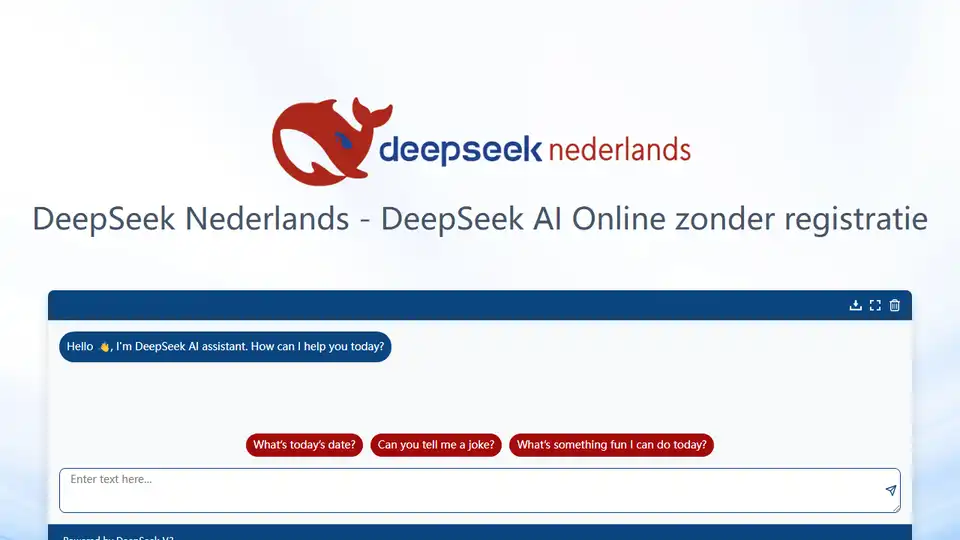
Experience seamless AI chat with DeepSeek Nederlands, powered by the advanced DeepSeek-V3 model. Use it for any task, completely free and without registration!
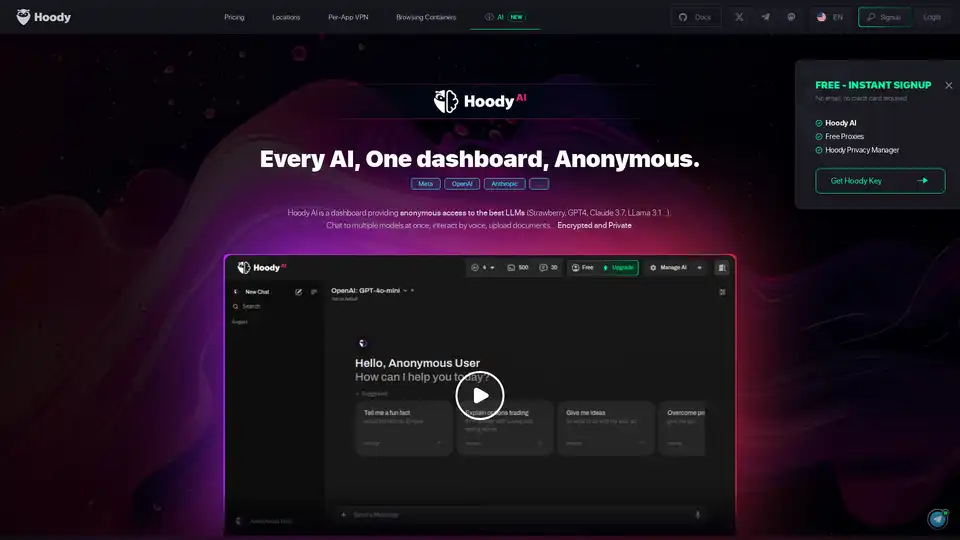
Hoody AI provides anonymous access to leading LLMs like GPT-4o, Claude 3.7, and Llama 3.1 via a secure dashboard. Enjoy multi-model chats, voice interactions, file uploads, and full privacy with no tracking or personal data required.
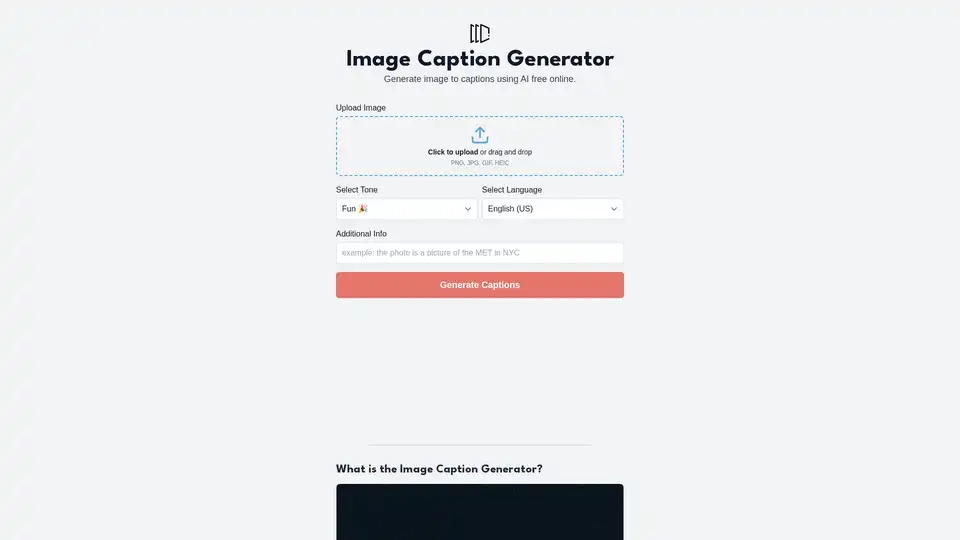
Generate captions for your images using AI for free online. Convert image to captions for Instagram, ALT Text, or other social media.
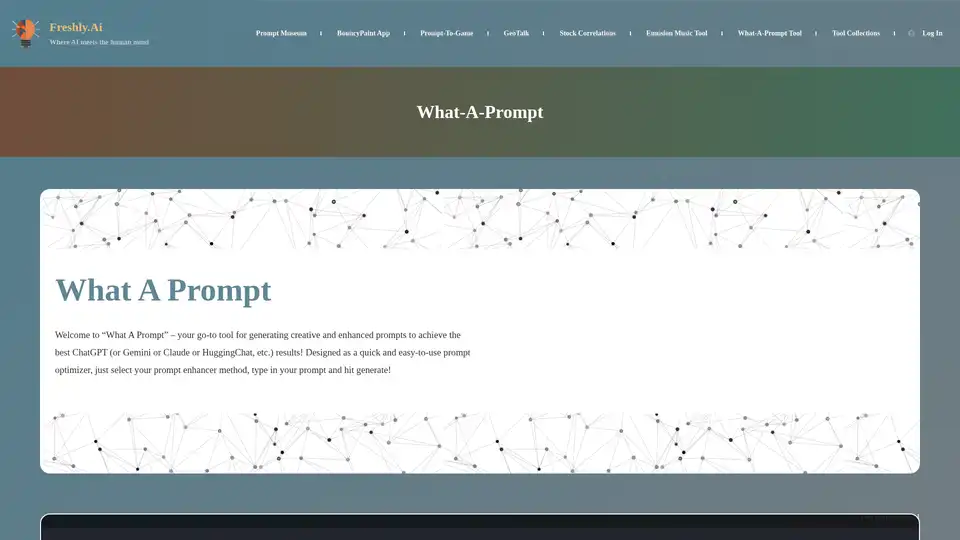
What-A-Prompt is a user-friendly prompt optimizer for enhancing inputs to AI models like ChatGPT and Gemini. Select enhancers, input your prompt, and generate creative, detailed results to boost LLM outputs. Access a vast library of optimized prompts.
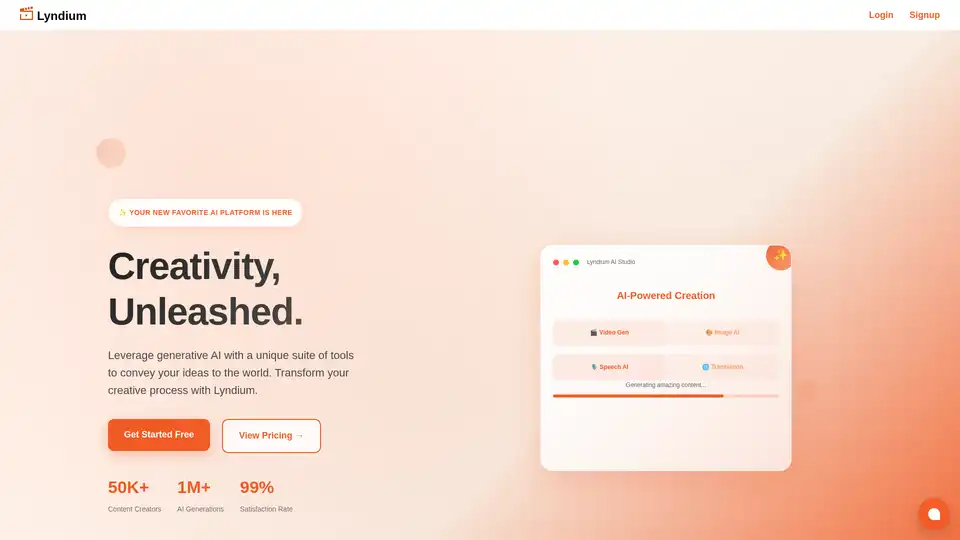
Lyndium is an AI platform for content creators, offering AI tools for video generation, image enhancement, speech synthesis, translation, and website building. It also features a marketplace for buying and selling digital content.
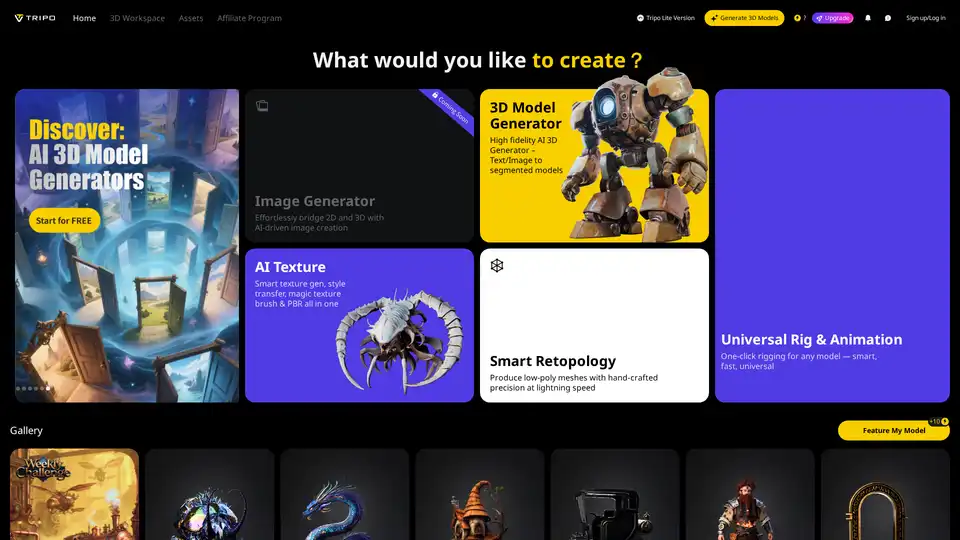
Tripo Studio is an AI-driven 3D workspace offering controllable generation of 3D models from text or images, with tools for texturing, retopology, rigging, and animation to streamline creator workflows.
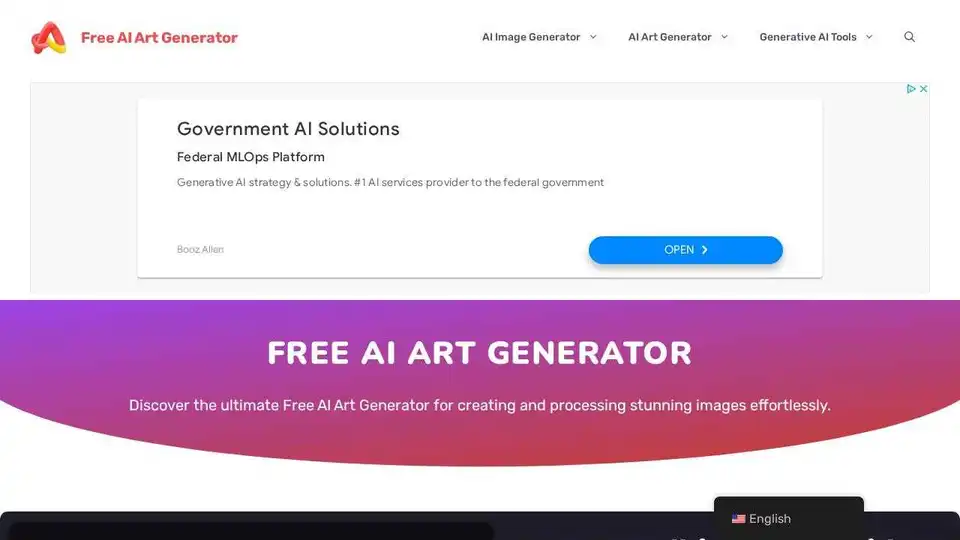
Free AI Art Generator: Turn text prompts into stunning AI-generated art for free. Create unique AI images for social media, personal projects, or marketing campaigns. Try it now!
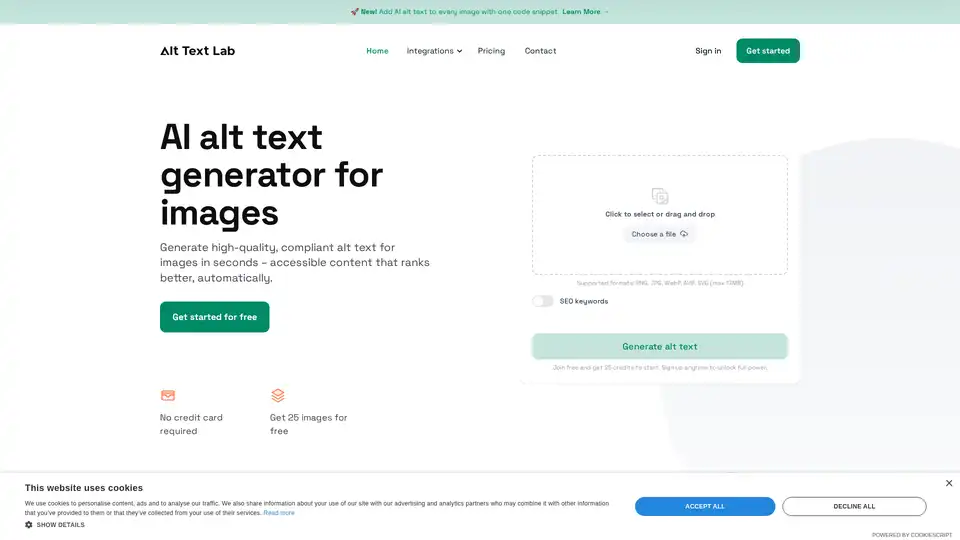
AltTextLab is an AI-powered tool that automatically generates SEO-friendly and accessible alt text for images, saving time and improving search rankings and accessibility compliance.
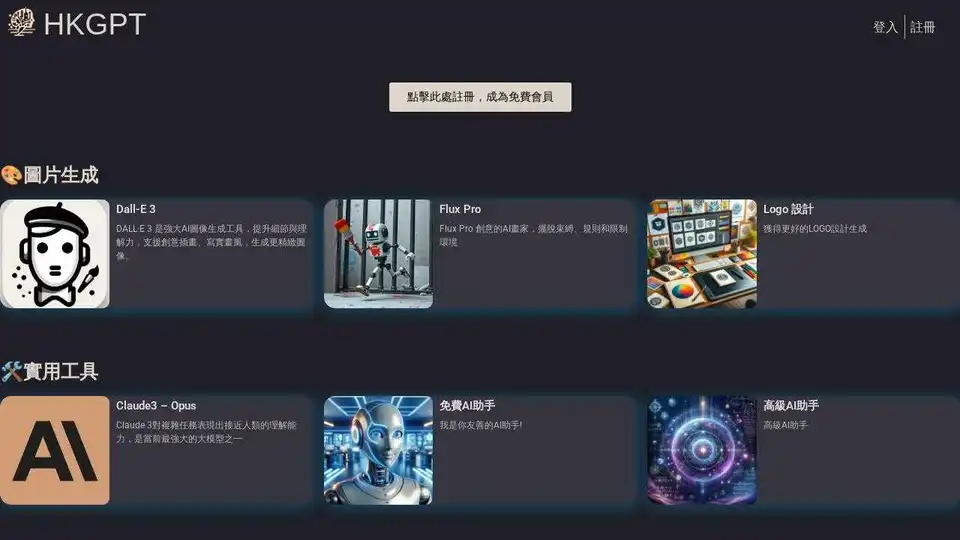
Explore HKGPT, Hong Kong's premier AI tool platform, offering diverse AI solutions for image generation, AI assistants, and more. Try DALL-E 3, Claude3 & other AI tools for free!
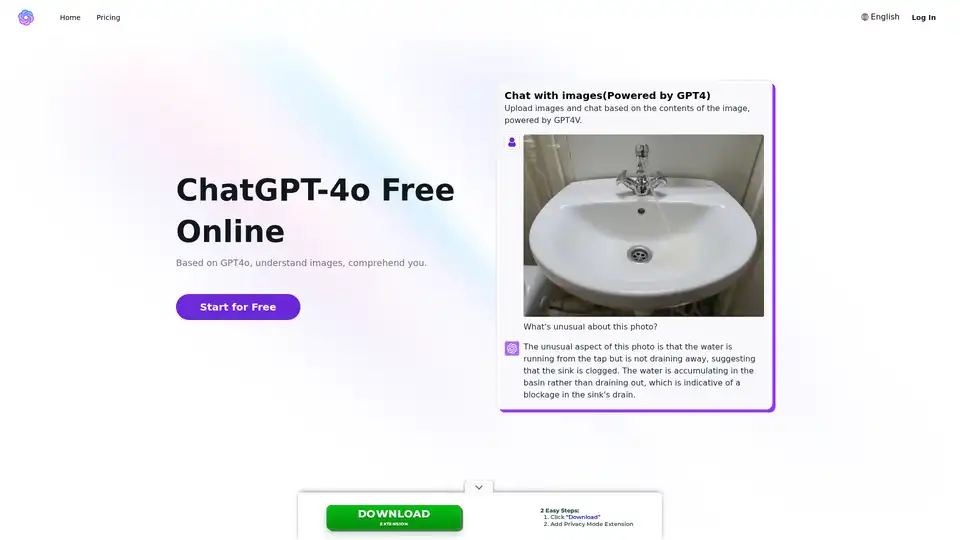
GPT-4o, powered by OpenAI, offers free online access via GPT4V.net. It excels in text and image generation, document understanding, and features advanced OCR for handwriting recognition.
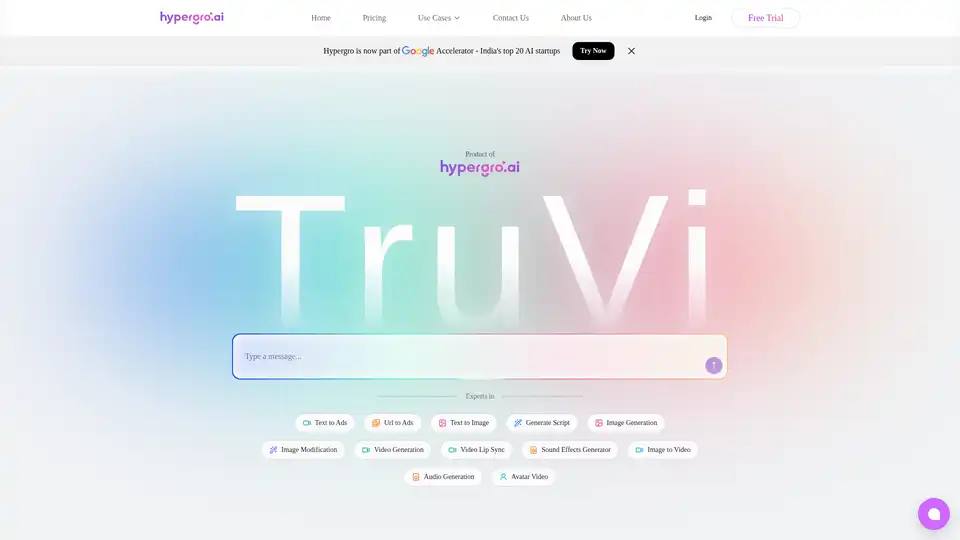
Hypergro is an AI creative partner that turns ideas into high-performing image and video ads for Meta, YouTube, and Instagram in minutes. Ideal for marketers seeking time-saving, cost-effective ad creation with easy customization and multi-language support.
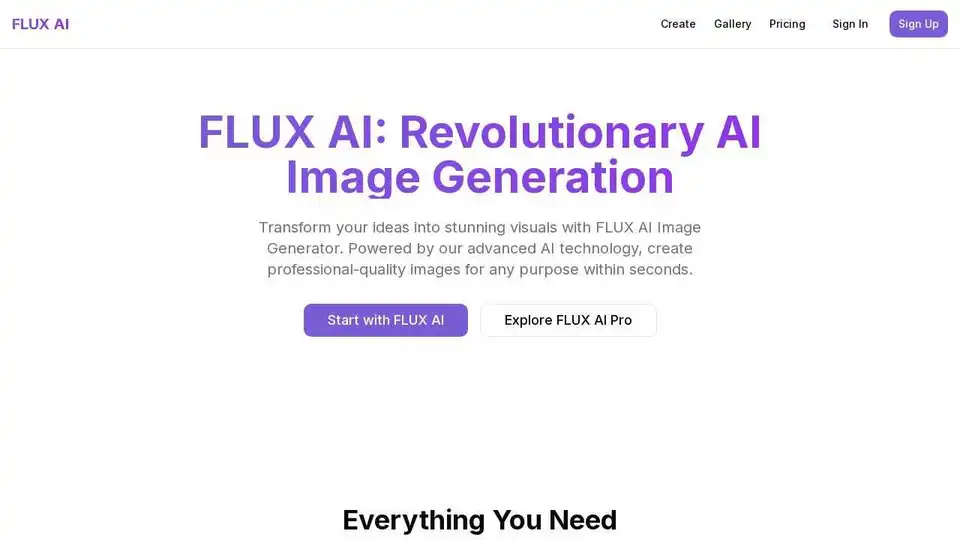
FLUX AI is a revolutionary AI image generator that transforms ideas into stunning visuals with advanced AI technology. Create professional-quality images for any purpose in seconds.
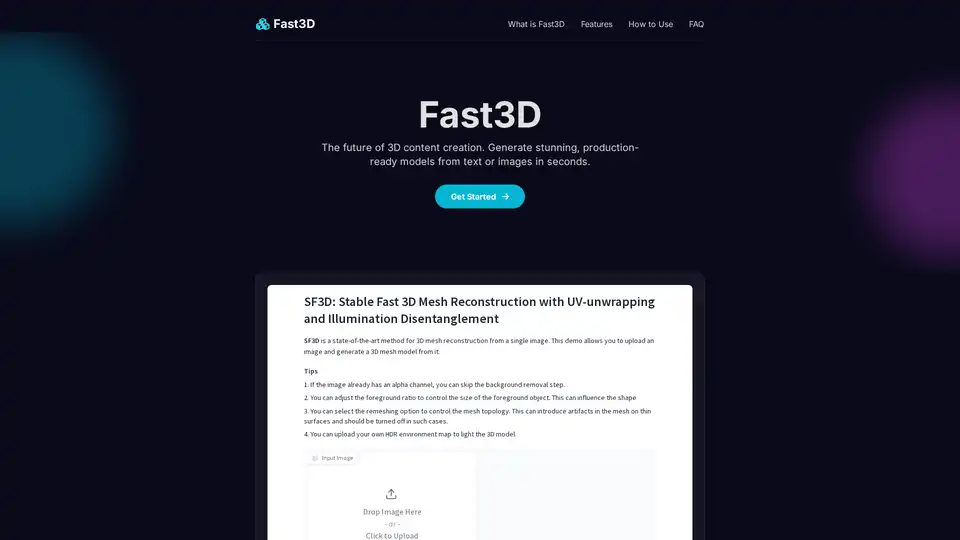
Discover Fast3D, the AI-powered solution for generating high-quality 3D models from text and images in seconds. Explore features, applications in gaming, and future trends.
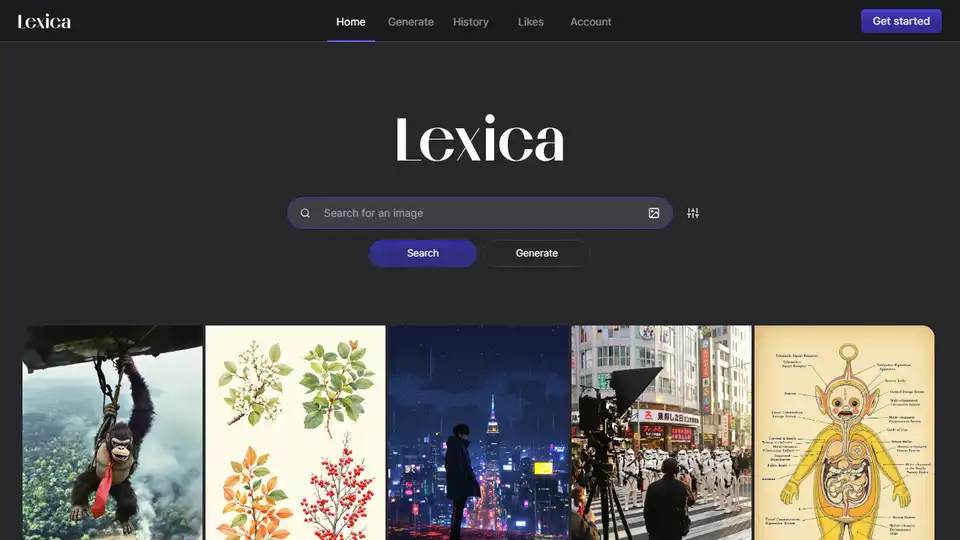
Lexica is a state-of-the-art AI image generation engine that allows you to create unique and stunning visuals with simple text prompts. Explore a vast library of AI-generated art and unleash your creativity.
